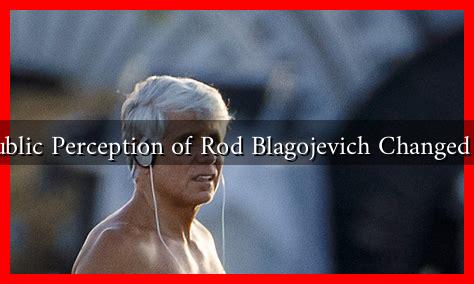-
Table of Contents
How Has Public Perception of Rod Blagojevich Changed Over Time?
Rod Blagojevich, the former Governor of Illinois, is a figure whose public perception has undergone significant transformation since his rise to political prominence. Initially celebrated for his charisma and progressive policies, Blagojevich’s reputation plummeted following his arrest and subsequent conviction on corruption charges. This article explores the evolution of public perception surrounding Blagojevich, examining the factors that contributed to his changing image over the years.
The Rise of Rod Blagojevich
Rod Blagojevich was first elected as the Governor of Illinois in 2002, and he quickly became known for his energetic personality and ambitious agenda. His administration focused on several key issues:
- Healthcare reform
- Education funding
- Infrastructure improvements
During his first term, Blagojevich enjoyed relatively high approval ratings, bolstered by his ability to connect with voters and his promises of reform. His charismatic style and commitment to progressive policies made him a popular figure in Illinois politics.
The Fall from Grace
The turning point in Blagojevich’s public perception came in December 2008 when he was arrested on federal corruption charges.
. The allegations included attempting to sell the U.S. Senate seat vacated by Barack Obama after his election as President. This scandal shocked the nation and led to a rapid decline in Blagojevich’s popularity.
Key events during this period included:
- His infamous press conference where he claimed he was “not guilty” and that he was a “victim” of political persecution.
- The release of FBI wiretaps that captured Blagojevich discussing the sale of the Senate seat, which painted him as a corrupt politician.
- His impeachment by the Illinois State Legislature in January 2009, which further solidified public disdain.
As a result, Blagojevich’s approval ratings plummeted, and he became a symbol of political corruption in America. The media coverage was relentless, often portraying him as a caricature of a corrupt politician.
Conviction and Imprisonment
In 2011, Blagojevich was convicted on multiple counts of corruption and sentenced to 14 years in federal prison. His conviction further entrenched negative public perception, as many viewed him as a cautionary tale of political hubris and greed. However, as time passed, some began to view his story through a different lens.
Changing Narratives: From Villain to Victim
In recent years, there has been a noticeable shift in how some segments of the public perceive Blagojevich. Factors contributing to this change include:
- Media portrayals that humanize him, focusing on his family and the impact of his imprisonment.
- Public discussions about the fairness of his trial and the severity of his sentence.
- His appearances on reality television, which have allowed him to re-enter the public consciousness in a different light.
In 2020, Blagojevich was granted clemency by then-President Donald Trump, which reignited debates about his guilt and the justice system. Supporters argued that he had been unfairly targeted, while critics maintained that he deserved his punishment.
Current Public Perception
Today, public perception of Rod Blagojevich remains divided. While many still view him as a corrupt politician who betrayed public trust, others see him as a victim of a flawed system. This dichotomy is reflected in various polls and social media discussions, where opinions about him are often polarized.
For instance, a 2021 poll indicated that while 60% of respondents believed he deserved his sentence, 40% felt he had been treated unfairly. This split illustrates the complexity of his legacy and the ongoing debate about accountability in politics.
Conclusion
Rod Blagojevich’s journey from a popular governor to a convicted felon and, more recently, a figure of sympathy for some, highlights the fluid nature of public perception. Factors such as media representation, personal narratives, and broader societal discussions about justice and corruption have all played a role in shaping how he is viewed today. As time goes on, it will be interesting to see how Blagojevich’s story continues to evolve and what it ultimately signifies about political accountability in America.
For further reading on political corruption and public perception, you can explore resources from the Brookings Institution.





